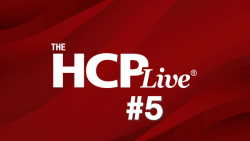
OR WAIT null SECS
VERVE-102 Safely Cuts LDL-C Levels in Early Phase 1b Results
A single infusion of VERVE-102 gene editing therapy achieved dose-dependent lowering in blood PCSK9 and LDL-C in initial results from the Heart-2 trial.
Initial results from the Phase 1b Heart-2 clinical trial evaluating VERVE-102 gene therapy showed promising efficacy for the treatment of patients with heterozygous familial hypercholesterolemia (HeFH) and/or premature coronary artery disease (CAD).1
Announced by Verve Therapeutics on April 14, 2025, a single infusion of the in vivo gene editing medicine achieved dose-dependent reductions in blood PCSK9 and low-density lipoprotein cholesterol (LDL-C), with a mean LDL-C reduction of ≥50% and a maximum decrease of nearly 70% at the highest dose.
Earlier this month, the US Food and Drug Administration (FDA) granted Fast Track designation to VERVE-102 for the treatment of patients with hyperlipidemia and high lifetime cardiovascular risk to reduce LDL-C levels.2
“These initial Heart-2 data are promising with respect to both safety and efficacy and suggest the potential for a new era of cardiovascular disease treatment where a single dose might lead to lifelong control of LDL-C,” said Eugene Braunwald, MD, Distinguished Hersey Professor of Medicine at Harvard Medical School and Founding Chairman, TIMI Study Group, Brigham and Women’s Hospital. “Despite existing treatments to lower LDL-C, atherosclerotic cardiovascular disease (ASCVD) remains the most frequent cause of death worldwide.”1
Verve Therapeutics is targeting development initially for HeFH, intending to ultimately treat patients with established ASCVD who continue to be impacted by high LDL-C levels. VERVE-102 uses the company’s proprietary GalNAc-LNP delivery technology, designed to allow a lipid nanoparticle (LNP) to access liver cells using either the low-density lipoprotein receptor (LDLR) or the asialoglycoprotein receptor (ASGPR).
The company received FDA clearance for its Investigational New Drug (IND) application for VERVE-102 in March 2025 based on interim data from the dose–escalation part of Heart-2. Heart-2 is a single-ascending dose trial, with endpoints comprising pharmacokinetics and changes in blood LDL-C and PCSK9 protein levels.3
The trial was designed to include four dose cohorts of 3-9 participants with HeFH and/or premature CAD. These initial efficacy and safety data from Heart-2 included 14 participants across 3 weight-based dose cohorts (0.3 mg/kg, 0.45 mg/kg, and 0.6 mg/kg), with ≥28 days of follow-up at the March 2025 cutoff.
Safety analysis found VERVE-102 well-tolerated across the 14 participants, demonstrating no treatment-related serious adverse events (SAEs), dose-limiting toxicities, or cardiovascular events. A single Grade 2 infusion-related reaction was resolved with acetaminophen—no clinically significant changes in alanine aminotransferase (ALT), aspartate aminotransferase (AST), bilirubin, or platelets were identified at any dose level.1
Efficacy analysis demonstrated dose-dependent reductions in blood LDL-C and PCSK9 protein levels after a single infusion of VERVE-102. Mean time-averaged percent reductions in LDL-C and PCSK9 from Day 28 through the last available follow-up were 21% and 46% with 0.3 mg/kg (n = 4), 41% and 53% with 0.45 mg/kg (n = 6), and 53% and 60% with 0.6 mg/kg (n = 4), respectively. A maximum LDL-C reduction of 69% was achieved in the 0.6 mg/kg cohort.
The company also evaluated pharmacodynamic data by total RNA dose, grouping the 14 participants into three ranges: <25 mg (n = 4), 25–<50 mg (n = 7), and 50–<60 mg (n = 3). VERVE-102 demonstrated a strong dose-dependent response between total RNA dose and LDL-C reduction, with three participants receiving an average of 55 mg of total RNA achieving a time-averaged mean LDL-C reduction of 59%.
Verve Therapeutics announced its expectation to report final data from the dose-escalation portion of Heart-2, dose the first patient in a Phase 2 clinical trial for VERVE-102, and deliver the opt-in data package for the PCSK9 program to Eli Lilly and Company in the second half of 2025.1
“We are pleased by the safety VERVE-102 has demonstrated so far, and our proprietary GalNAc-LNP delivery technology is showing a potentially best-in-class safety profile,” said Sekar Kathiresan, MD, co-founder and chief executive officer of Verve. “The initial efficacy data suggest that VERVE-102 has the potential to match or exceed the LDL-C reduction provided by currently available PCSK9-targeting therapies.”1
References
Verve therapeutics announces positive initial data from the heart-2 Phase 1b Clinical Trial of verve-102, an in vivo base editing medicine targeting PCSK9. Verve Therapeutics. April 14, 2025. Accessed April 14, 2025. https://ir.vervetx.com/news-releases/news-release-details/verve-therapeutics-announces-positive-initial-data-heart-2-phase.
Iapoce C. FDA Grants Fast Track designation to verve-102 gene therapy. HCP Live. April 11, 2025. Accessed April 14, 2025. https://www.hcplive.com/view/fda-grants-fast-track-designation-to-verve-102-gene-therapy.
Iapoce C. FDA clears ind application for verve-102 gene therapy for HeFH. HCP Live. March 25, 2025. Accessed April 11, 2025. https://www.hcplive.com/view/fda-clears-ind-application-for-verve-102-gene-therapy-for-hefh.


